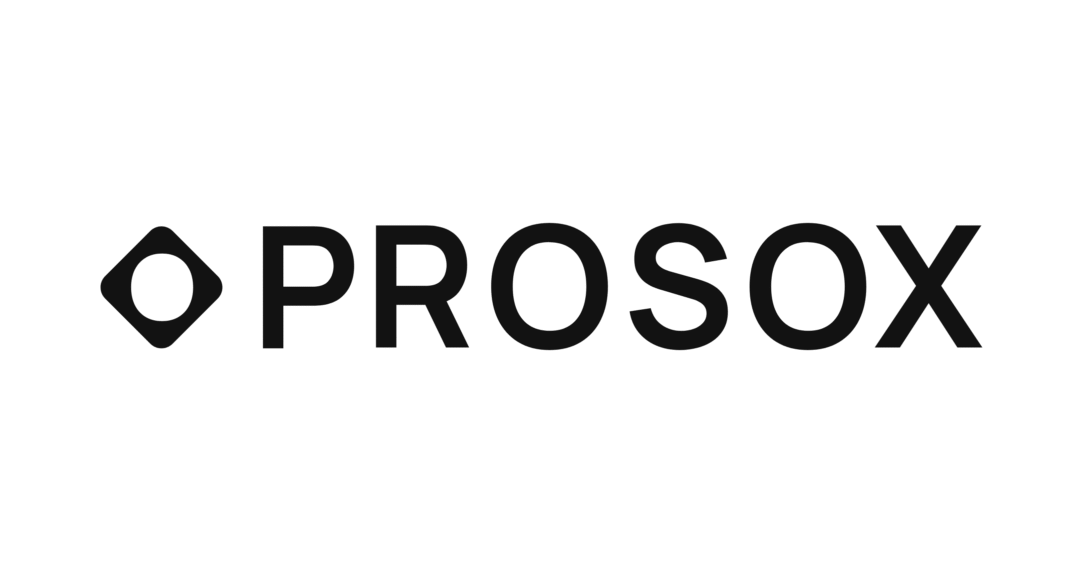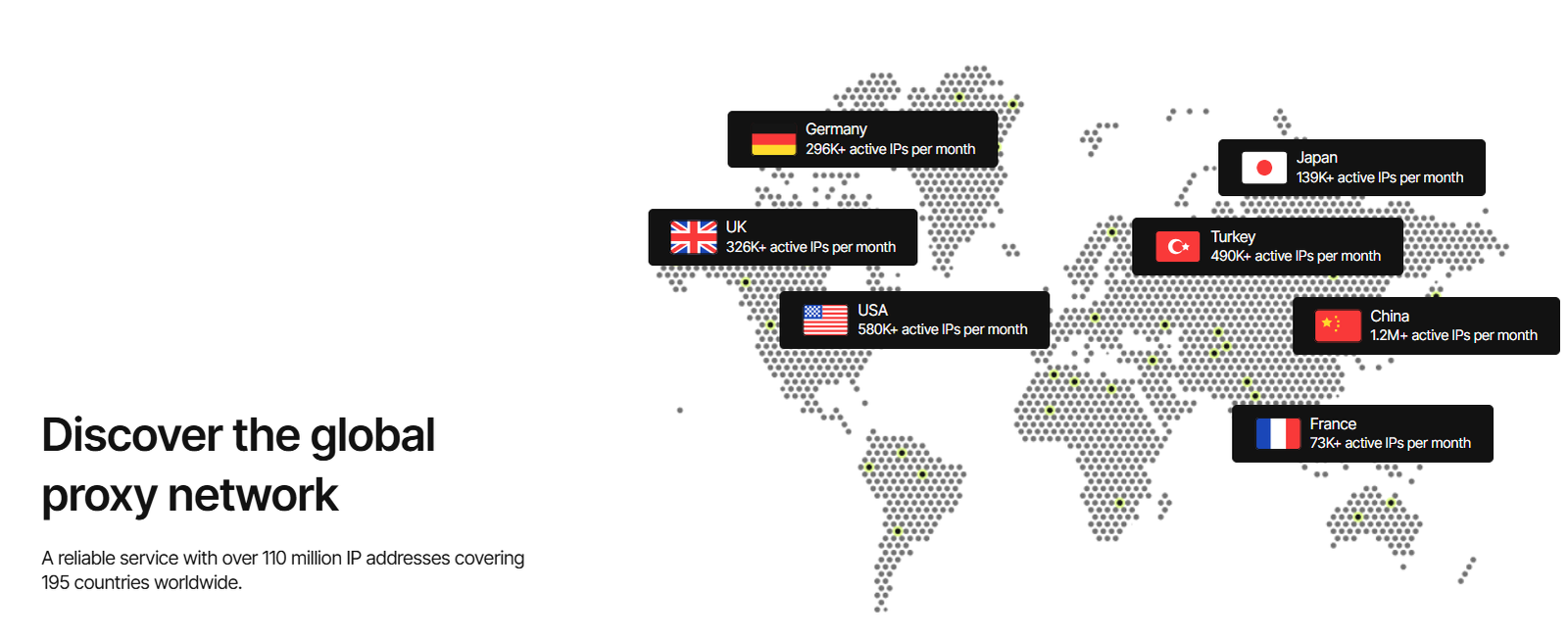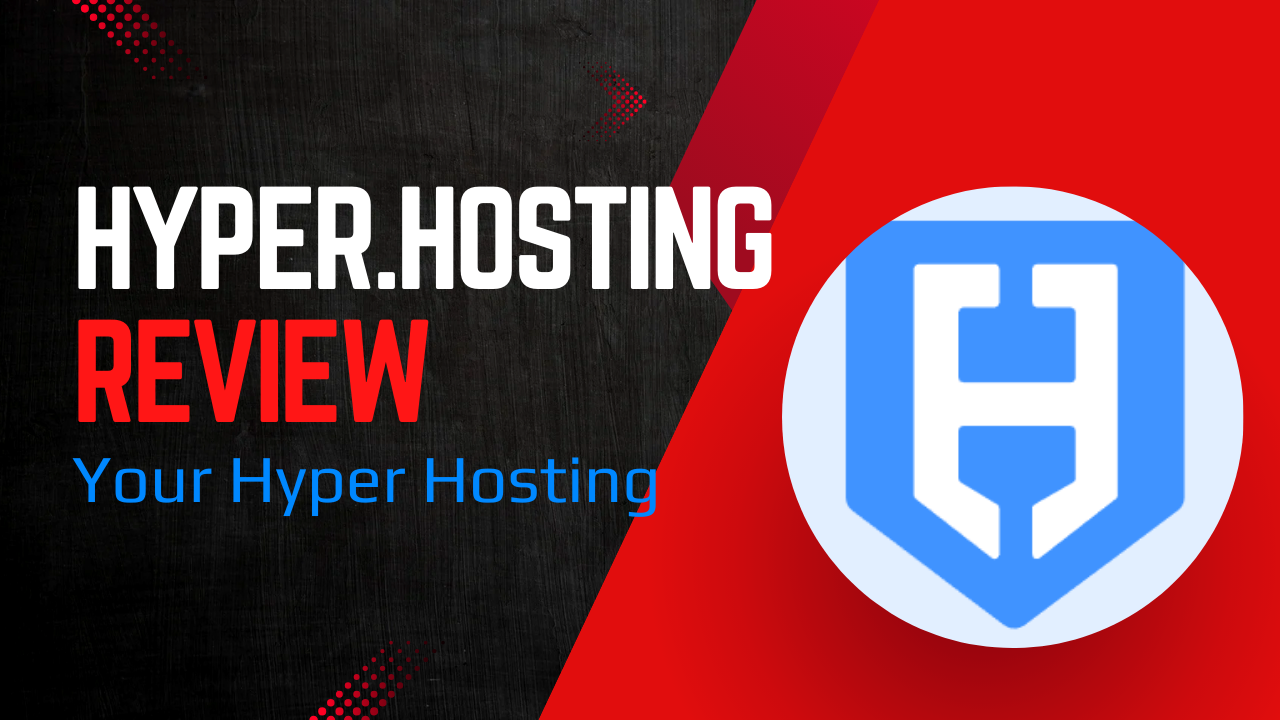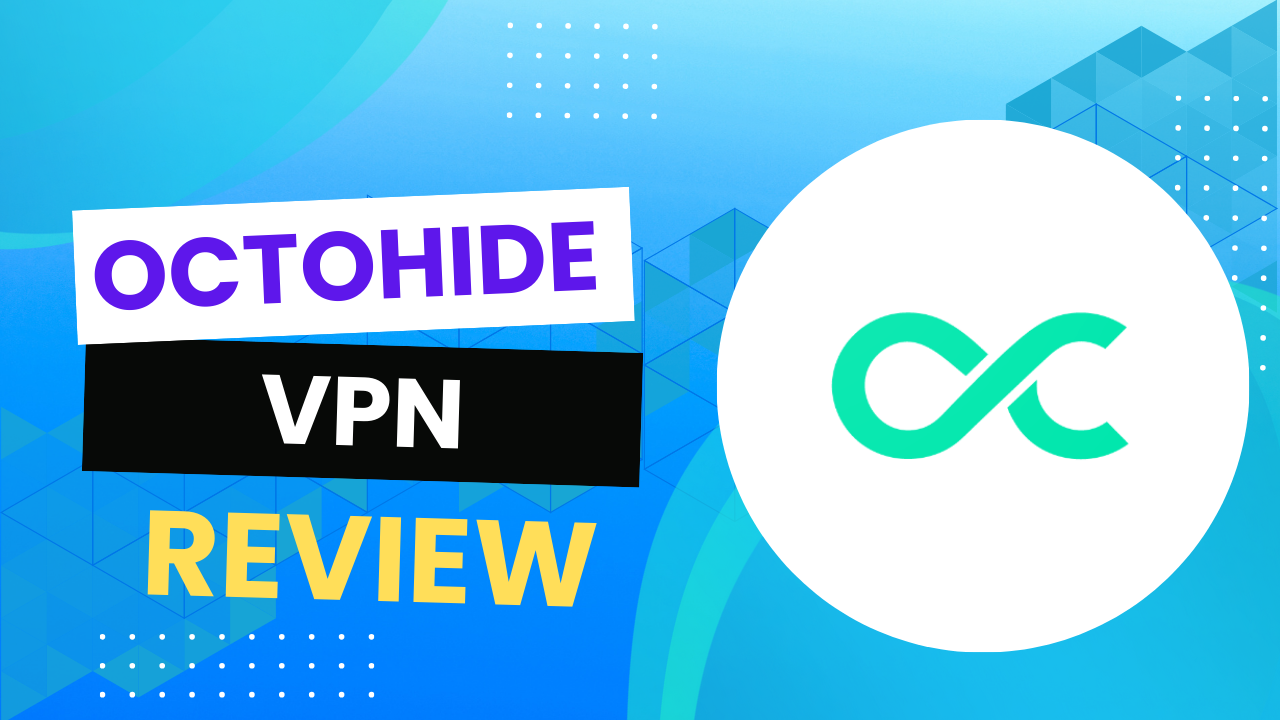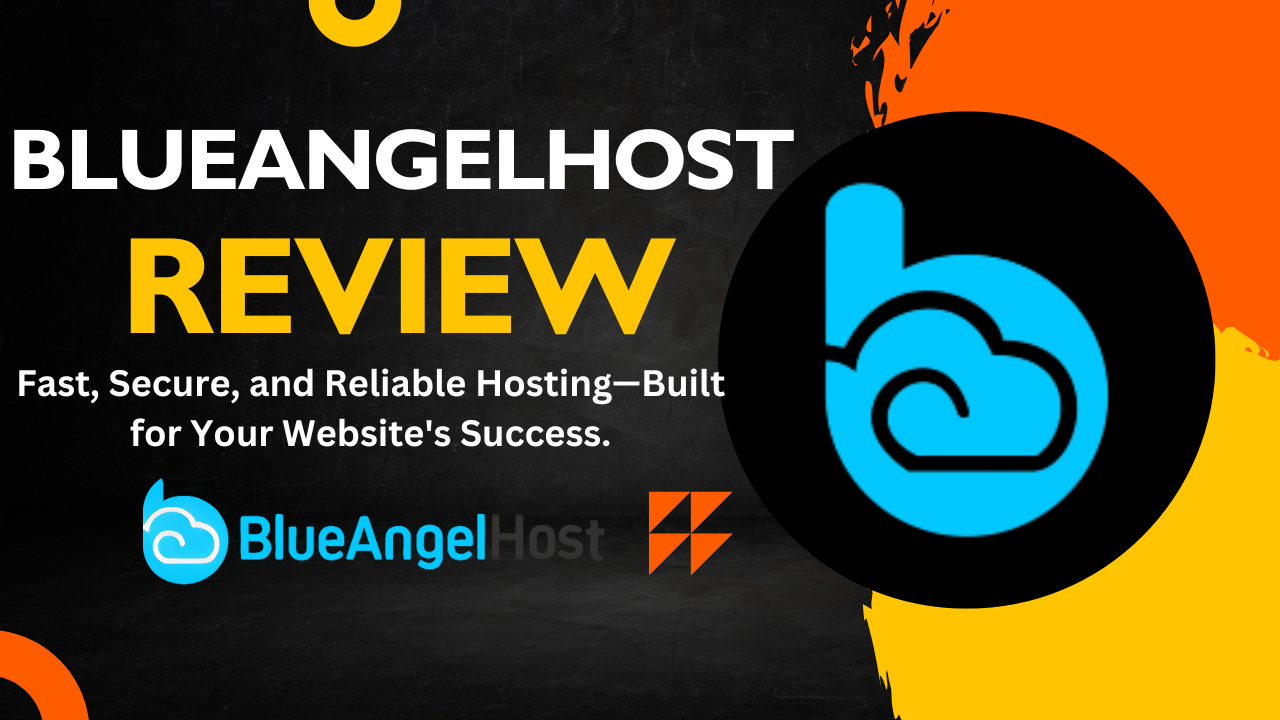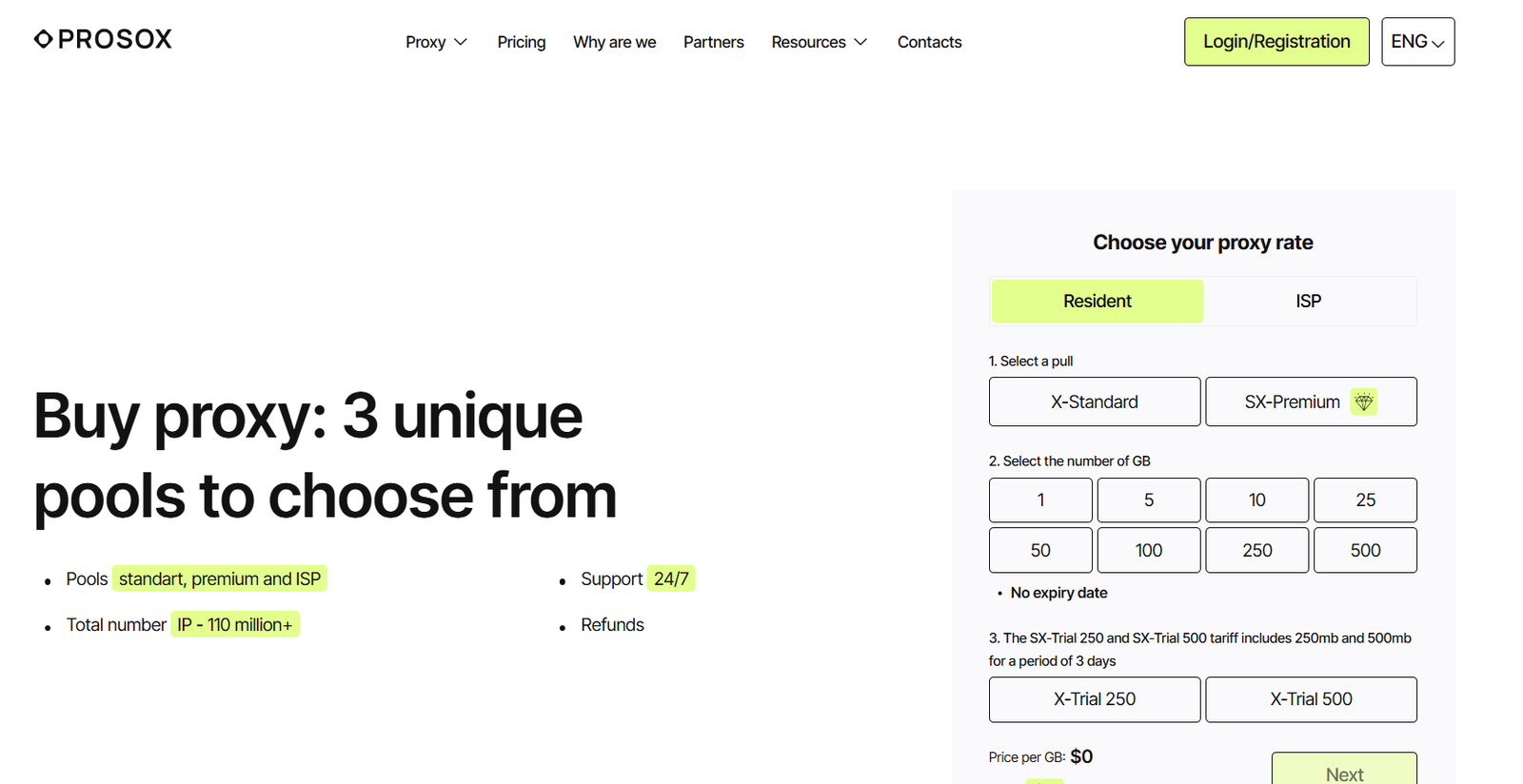
If you’re searching for high-quality residential and ISP (static residential) proxies with extensive geo-targeting, API control, and reliable performance, Prosox.io is likely on your shortlist. In this hands-on review, we break down Prosox’s product types, traffic-based billing, trials, performance considerations, and the specific use cases where it excels—plus where it might not be the perfect fit.
Quick Summary
Prosox.io offers a large global pool of residential IPs and ISP (static residential) proxies with HTTP and SOCKS5 support. The service emphasizes stable connectivity, granular geo-targeting (country- and city-level), and a control panel/API suitable for teams and automation. Billing is traffic-based (GB), with options to purchase IP quantities and validity periods for static allocations. Trial tiers (e.g., small MB allotments for a few days) allow you to test before scaling. In practice, Prosox is a strong candidate for e-commerce intelligence, localized QA, social, travel, finance, and SEO tasks.
What Is Prosox.io?
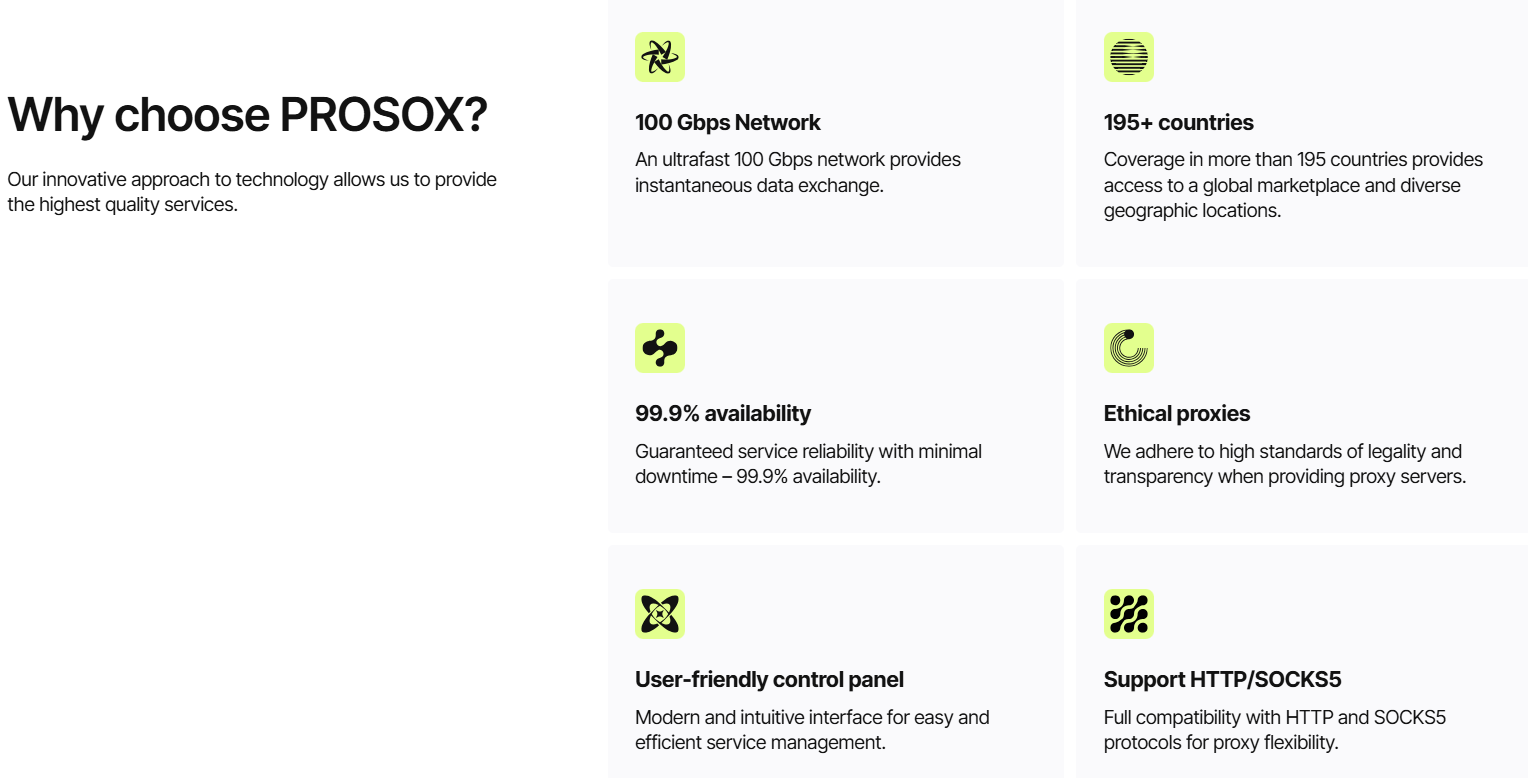
Prosox.io is a proxy provider focused on residential and ISP/static IP connectivity. The platform is built for businesses that need clean IPs, flexible rotation policies, and predictable uptime for high-volume tasks. A modern dashboard and developer-friendly API aim to reduce setup friction while giving granular control over sessions, rotations, and targeting.
Key highlights include:
- Large global IP pool spanning 190+ locations.
- Residential (rotating/static options) and ISP/static residential pools.
- HTTP & SOCKS5 support for broad tool compatibility.
- Traffic-based billing with multi-size data packages.
- Trial plans for low-risk evaluation.
- 24/7 support and a refund policy (conditions usually apply).
Products & Proxy Types
X-Standard (Residential)
X-Standard is designed as a high-value residential pool for everyday production workloads. You can run rotating sessions for web data collection, ads verification, and localized QA tests without paying a premium for ultra-niche IP segments you may not need.
SX-Premium (Residential)
SX-Premium targets advanced users who need faster connections, lower block rates, or cleaner subnets. If you’re running delicate workflows (travel, tickets, dynamic pricing checks, or high-touch social operations), SX-Premium often delivers improved consistency at scale.
ISP / Static Residential
ISP/static residential proxies are sourced directly from Internet Service Providers, offering persistent IPs with the credibility of consumer-grade ranges. These are excellent for account operations that require consistent IP reputations (banking/exchanges, API-gated dashboards, private marketplaces) and lower jitter versus rotating residential.
Pricing Structure & Trials
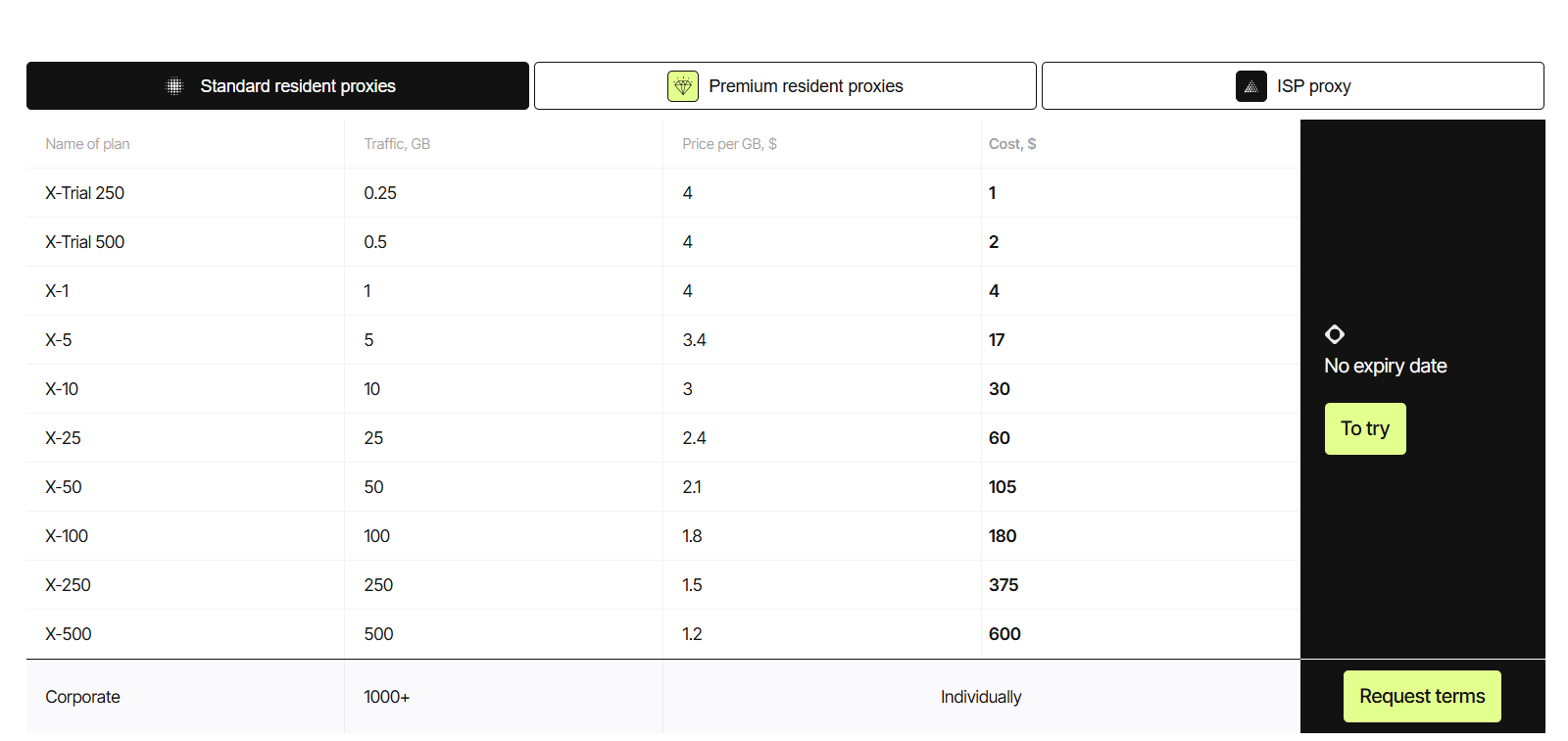
Prosox uses a traffic-based billing model for residential pools, letting you purchase data packages by the GB. Common tiers include 1, 5, 10, 25, 50, 100, 250, and 500 GB. For ISP/static allocations, you’ll typically choose the number of IPs (e.g., 1, 2, 5, 10, 25, 50, 75, 100) plus a validity period (1, 7, 30, or 90 days).
Important: Many proxy vendors, including Prosox, present pricing dynamically in the dashboard after signup or via quote. If the public calculator displays placeholder text (e.g., “Price per GB: $0”), it generally means exact rates are shown to authenticated users or vary by region, volume, or compliance checks. For an accurate quote, create an account and request pricing within the dashboard.
Trials
Prosox offers trial packages (e.g., ~250–500 MB for ~3 days) so teams can validate speed, success rates, and geo coverage before buying larger bundles. Trials are especially helpful to test your specific stack (headers, concurrency, rotations, target domains).
Tip: During trials, benchmark your effective success rate (2xx/targeted outcomes), median TTFB, and captcha frequency for your exact targets. That data will inform whether to choose X-Standard or upgrade to SX-Premium.
Geo Targeting, Protocols & Rotation
Prosox supports country- and city-level targeting across a broad set of locations. This granularity is key for tasks sensitive to local pricing, inventory, or content (e.g., travel aggregators, ride-hailing, retail stock checks).
- Protocols: HTTP & SOCKS5 are both supported, making Prosox compatible with most scraping frameworks, browsers, and automation tools.
- Rotation: Choose rotating residential for scale and resiliency. Configure sticky sessions when you need persistence across multi-step flows (checkout, profile updates, etc.).
- Authentication: Standard user:pass auth is common; IP-allowlisting may also be available through the dashboard.
Performance: Speed, Stability & Uptime
Prosox emphasizes a high-throughput backbone and stable uptime—critical for overnight jobs and monthly reporting pipelines. In general:
- Residential: Expect variable last-mile quality (that’s inherent to residential), but premium pools typically show faster handshake times and fewer friction events on sensitive sites.
- ISP/Static: Delivers the most consistent latency and session stability; ideal for logins, dashboards, and flows where an IP change would break the session.
- Concurrency: Confirm concurrency limits in your plan. Scale threads gradually and watch for target-side rate limits, not just proxy throughput.
Best practices to maximize performance:
- Align rotation strategy with target behavior (e.g., rotate per request on heavy defenses; use sticky sessions for carts/forms).
- Randomize headers, device profiles, and timing to mimic human browsing when appropriate.
- Cache non-sensitive resources; avoid refetching static assets through proxies to save GB.
- Implement smart retries with exponential backoff and circuit breakers.
- Monitor target-specific block patterns; consider SX-Premium if you see elevated soft blocks (403s, 429s, captchas).
Best Use Cases
Prosox can fit a wide range of workflows. Below are scenarios where it tends to perform particularly well:
- E-commerce intelligence: price comparison, stock checks, ratings/reviews audits, MAP compliance.
- Travel & hospitality: fare parity checks, local availability, and city-level content validation.
- SEO & SERP: localized rank tracking, snippet capture, competitor SERP audits.
- Brand protection: counterfeit detection, unauthorized seller monitoring, ad verification.
- Social & community ops: account QA, moderation workflows (respect all platform ToS).
- FinTech & dashboards: static/ISP IPs for login-sensitive platforms and private APIs.
- App & site QA: content localization tests across cities and ISPs.
How to Get Started (Step-by-Step)
- Create your account on the Prosox dashboard.
- Request a trial (residential or ISP) to test your targets with minimal cost.
- Pick your pool:
- X-Standard for general use and value.
- SX-Premium for stricter targets and higher throughput.
- ISP/Static for session-critical logins and dashboards.
- Choose your package (GB size for residential, IP count + days for ISP/static).
- Configure endpoints in your tool of choice (HTTP/SOCKS5, user:pass or IP auth).
- Set rotation (per request or sticky sessions) according to workflow.
- Start small: ramp threads and watch success metrics before scaling.
Pros & Cons
| Pros | Cons |
|---|---|
| Large global pool with country/city targeting. | Public website may not show final pricing until login/quote. |
| Residential + ISP/static options cover most business needs. | Residential speed can vary by last-mile ISP (typical for the category). |
| HTTP & SOCKS5 protocols; API for automation. | Strict targets may require SX-Premium (higher cost). |
| Trial tiers let you validate success rate before scaling. | Learning curve for optimal rotation and concurrency settings. |
| 24/7 support and refund policy (with terms). | Some niche GEOs may require contacting support for access. |
Prosox vs Alternatives
Every proxy stack is unique, so consider a trial-based bake-off. Here’s a high-level comparison template to guide decisions:
| Provider | Proxy Types | Targeting | Billing | Best For |
|---|---|---|---|---|
| Prosox.io | Residential (X-Standard, SX-Premium), ISP/Static | Country & City | GB-based (residential); IP count + days (ISP) | Balanced value/performance; session-critical static needs |
| Alternative A | Residential, Datacenter | Country (limited city) | GB-based | Bulk data collection with low geo granularity |
| Alternative B | Residential, ISP | Country & City | GB-based + seats | Teams needing strict city-level consistency |
| Alternative C | Datacenter | Country only | IPs/month | Low-cost, low-evasion targets |
Note: Replace “Alternative A/B/C” with the competitors you’re actively evaluating. Run identical tests on your primary targets (same headers, rate, and timing) to compare effective success rate and cost per successful request.
Frequently Asked Questions
Does Prosox publish fixed public pricing?
Pricing is typically shown after login or provided by quote. The website calculator may display placeholders until you’re authenticated. Trials are designed to help you test before committing to a larger package.
What’s the difference between X-Standard and SX-Premium?
X-Standard is the value-oriented residential pool suited to most day-to-day scraping and QA tasks. SX-Premium focuses on cleaner subnets, lower block rates, and higher throughput for strict targets. If you see too many friction events (403/429/captchas), try SX-Premium.
When should I use ISP/static residential instead of rotating residential?
Use ISP/static when your workflow requires consistent IP identity—logins, banking/exchange dashboards, private APIs, or long multi-step flows. Rotating residential is better for broad data collection and ad verification at scale.
Which protocols does Prosox support?
HTTP and SOCKS5 are supported. Choose based on your toolset and target behavior.
Can I target by city?
Yes—city-level targeting is available for many locations. Always verify availability for the specific cities you need during your trial.
Is there an API?
Yes. The API lets you programmatically manage sessions, gateways, and configurations, which is vital for CI/CD pipelines and large-scale jobs.
What about refunds?
Prosox advertises a refund policy; terms usually apply. Confirm eligibility and conditions with support before purchasing large packages.
Final Verdict
Prosox.io is a compelling choice for teams that need both rotating residential and static/ISP proxies under one roof. Its strengths are global coverage, granular targeting, a usable dashboard/API, and trial access to validate fit. While public, fixed pricing may not appear until login or quote, the trial-first approach helps you measure real-world success rate and cost efficiency before scaling.
If your workloads include localized audits, SERP checks, brand protection, dynamic pricing checks, or session-critical logins, Prosox deserves a test run. Start with a small GB package or a static IP bundle for 7–30 days, benchmark results, and then scale into SX-Premium or larger bundles if your metrics justify it.



